SEMARANG – A total of 17 students from Universitas Diponegoro (UNDIP) are currently carrying out an innovative multidisciplinary program as part of their Kuliah Kerja Nyata Tematik (KKNT) 167. program, titled “Penerapan Sistem Zero Waste di Desa Wisata melalui Pengelolaan Sampah Pertanian dan Rumah Tangga Berkelanjutan” (Implementation of a Zero Waste System in Tourism Villages through Sustainable Agricultural and Household Waste Management), is being implemented in Desa Kemambang, located in Banyubiru Sub-district, Semarang Regency, Central Java. This multidisciplinary program was designed to address the challenges of waste management in the Sitaring tourism area of Desa Kemambang. The village has great agricultural and tourism potential, but lacks a structured waste management system. Therefore, students from various faculties are involved in developing a community-based zero waste system.
Through this activity, UNDIP students developed various programs such as training in making compost, eco-enzymes, and soap from organic waste and training in recycling plastic waste into valuable handicraft products. They also developed a Standard Operating Procedure (SOP) for waste management, designed 3R waste bins (Reduce, Reuse, Recycle), created a digital recording system for the local bank sampah (waste bank), and conceptualized spatial planning for a zero waste tourism area using architectural and technological approaches. KKNT 167 village coordinator, Shofiyah Nur Azizah, said that the program was designed with an interdisciplinary approach and involved the active participation of villagers. “We want to build a zero waste system that is not only completed during the KKN program, but can be continued by the community,” she said.
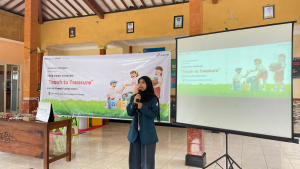
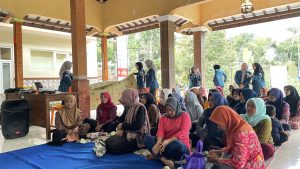
The program was also supported by village officials and the community who were very enthusiastic. Housewives actively participated in the training, village youth were involved in the waste monitoring team, and other residents helped in the practice of making soap and compost. The Head of Kemambang positively welcomed the presence of UNDIP students in his village. “We feel helped by this program. Hopefully the system initiated by students can continue to be developed and provide long-term benefits for our village,” he said.
The Head of P2KKN UNDIP, Adnan Fauzi, S.T., M.Kom., emphasized that KKN is not just about academic application, but also a way for students to learn social engagement. “Through KKN, students learn to recognize the real conditions in the field, build communication with residents, and participate in finding solutions to local problems. This is an important experience that cannot be obtained in the classroom,” he said.
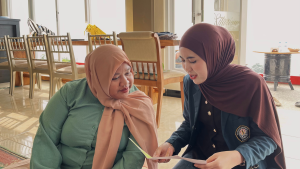
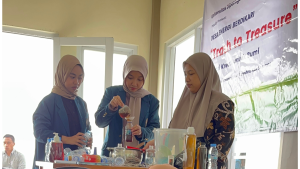
The program is also in line with the Sustainable Development Goals (SDGs), particularly point 11 (Sustainable Cities and Settlements), point 12 (Responsible Consumption and Production), and point 13 (Action on Climate Change). With the spirit of collaboration and an interdisciplinary approach, UNDIP students strive to make Kemambang a model of an environmentally friendly tourism village based on zero waste that can be replicated in various other regions in Indonesia.

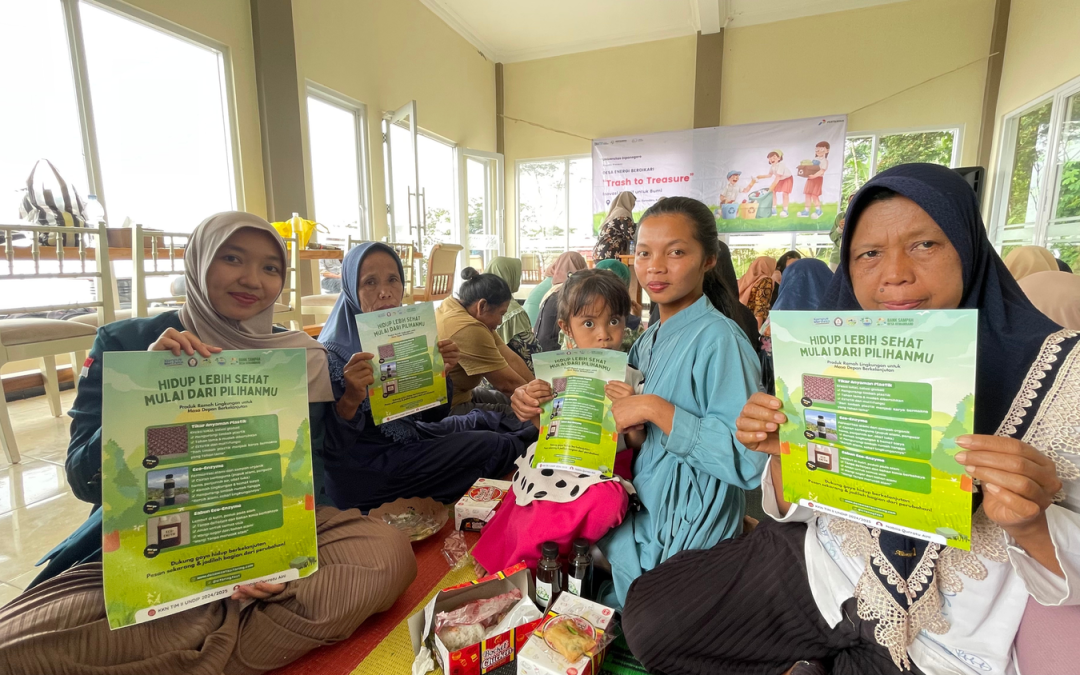
Recent Comments